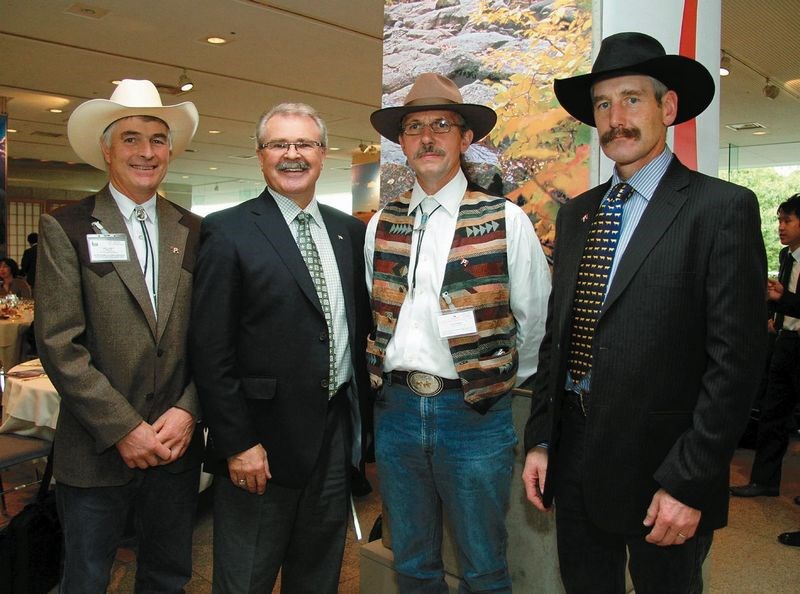Another continent - the second in three weeks - has gotten the local beef industry's message.
Immediately following a trade mission to China and Japan with government officials and other local cowboys, Vanderhoof rancher Roland Baumann continued on to France as part of the Canada Beef Export Federation contingent at the SIAL Global Food Marketplace, one of the biggest annual food industry trade fairs in the world.
Upon his return he told The Citizen that he has never felt such optimism for the Canadian ranching industry, but it is still too early to count the steaks before they're fried.
A European Union tariff on Canadian beef is about to end any day now. Baumann said a formerly friendly market is calling again for high-end red meat, while at the same time that China is making their first overtures to the B.C. cattle industry in particular.
He found it exciting that the potential customers in China were upscale restaurants and hotels who modeled themselves on the French style of cuisine, and France itself is about to get a reintroduction to grain-fed, four-season beef. The French, and most of Europe, lost their understanding of Canadian cattle characteristics since the BSE disease crisis almost 10 years ago.
"People that know North American beef, they are looking forward to our market re-entry," said Baumann. "They know about what our beef represents for fine cuisine, and it is really missing there right now. My wife is from France, my family is in France and Switzerland, so I eat their beef and yes, there is quite a difference in quality. We offer a much better alternative to what they are currently eating. But lots of people are still suspicious, they perceive inter-muscle fat as unhealthy; we strive for that in our beef. But people who really like to eat and appreciate cuisine know that this is what you're looking for and they will demand it again."
He said Switzerland is already importing half a million dollars worth of Canadian beef each month, and Spain and Russia are making inquiries.
"We are working on promoting Canadian beef as a whole, and the B.C. beef producer will profit from that. It is a tide that lifts all the boats," Baumann said. "That is why I pushed so hard for that trade mission to China and Japan, and I am pushing for more funding for the CBEF so we can go after customers. They are interested us, so we should take advantage of our opportunities."
Baumann has to take advantage of the opportunity to look after his own herd while he can. He weaned the calves on Sunday, and he has to prepare his home place for the winter feeding cycle. He is also prepping for a phone call from the CBEF to perhaps attend the Anuga food fair in Germany (he has represented Canada there twice before), the largest food-focused trade event on the planet.
Baumann stressed that all international interest aside, it was gratifying to all local ranchers to get the support of the Canadian consumer that kicked into high gear when BSE hit and blocked all Canadian meat from leaving the country. Canadian families are still proudly buying our nation's beef, he said, and there is no better demonstration of Canadian beef quality than high demand at our own grocery stores.



